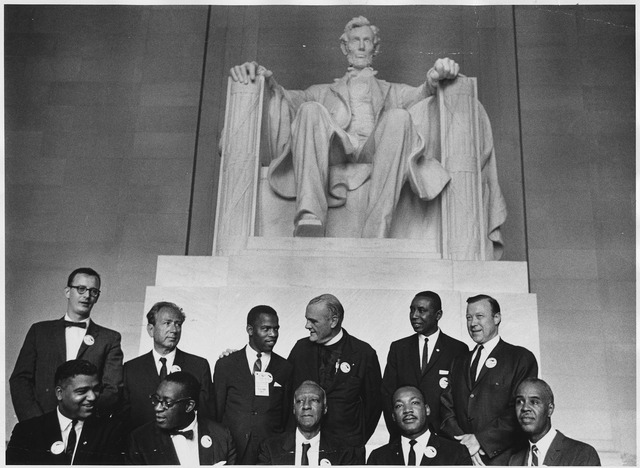Most people will not change until they stand to lose something.
This is not the Christian ethic. The Christian, just like Jesus, is willing to lose that others might gain.
Martin Luther King, Jr. was willing to lose that others might gain. Like his namesake, the Protestant reformer, Martin Luther, King took on a powerful system at the risk of his own life. King’s religious beliefs influenced, shaped and propelled his political activism.
King didn’t just vote his conscience. He acted on his conscience. Evangelicals everywhere can learn from his life, and his words, which changed the course of American history.
King, as the president of the Montgomery Improvement Association, which was formed after the arrest of Rosa Parks, said:
We must keep God in the forefront. Let us be Christian in all our actions. Love is one of the pinnacle parts of the Christian faith. There is another side called justice, and justice is really love in calculation.
The Christian gospel is a two-way road. On the one hand, it seeks to change the souls of men, and thereby unite them with God; on the other hand, it seeks to change the environmental conditions of men so the soul will have a chance after it is changed.
From his “I Have A Dream” speech, delivered at the civil rights demonstration in Washington, DC, in August, 1963:
We will not be satisfied until ‘justice rolls down like waters, and righteousness like a mighty stream’ … Let us not wallow in the valley of despair, I say to you today, my friends…
I have a dream that one day every valley shall be exalted, and every hill and mountain shall be made low, the rough places will be made plain, and the crooked places will be made straight; ‘and the glory of the Lord shall be revealed and all flesh shall see it together.
This is our hope, and this is the faith that I go back to the South with.
With this faith, we will be able to hew out of the mountain of despair a stone of hope. With this faith, we will be able to transform the jangling discords of our nation into a beautiful symphony of brotherhood. With this faith, we will be able to work together, to pray together, to struggle together, to go to jail together, to stand up for freedom together, knowing that we will be free one day.
And this will be the day — this will be the day when all of God’s children will be able to sing with new meaning:
My country ’tis of thee, sweet land of liberty, of thee I sing.
Land where my fathers died, land of the Pilgrim’s pride,
From every mountainside, let freedom ring!And if America is to be a great nation, this must become true.
And so let freedom ring from the prodigious hilltops of New Hampshire.
Let freedom ring from the mighty mountains of New York.
Let freedom ring from the heightening Alleghenies of Pennsylvania.
Let freedom ring from the snow-capped Rockies of Colorado.
Let freedom ring from the curvaceous slopes of California.But not only that:
Let freedom ring from Stone Mountain of Georgia.
Let freedom ring from Lookout Mountain of Tennessee.
Let freedom ring from every hill and molehill of Mississippi.From every mountainside, let freedom ring.
And when this happens, and when we allow freedom ring, when we let it ring from every village and every hamlet, from every state and every city, we will be able to speed up that day when all of God’s children, black men and white men, Jews and Gentiles, Protestants and Catholics, will be able to join hands and sing in the words of the old Negro spiritual:
Free at last! Free at last!
Thank God Almighty, we are free at last!“
On the war in Vietnam:
On some positions, cowardice asks the question, is it expedient? And then expedience comes along and asks the question—is it politic? Vanity asks the question—is it popular? Conscience asks the question—is it right?
Is it right, Christian?
